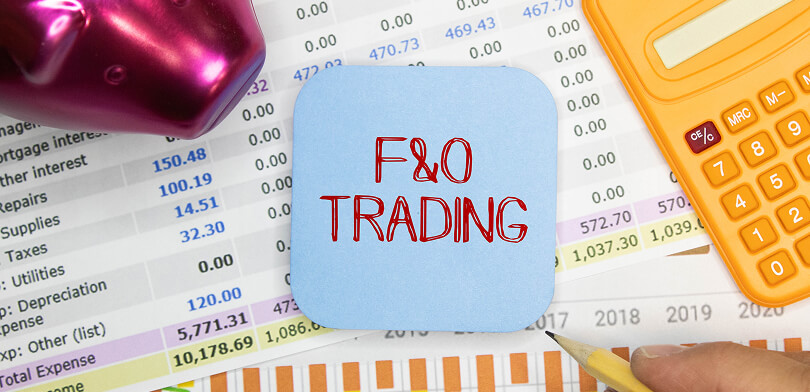- Last Updated: May 22,2024 |
- Religare Broking
When it comes to investing in the stock market , one of the common aspects that investors often overlook is taxes on stock trading. Taxation is an important component of how the revenue system of a country works. As a responsible citizen, we all should know and comply with the taxation norms applicable.
The oversight of taxation laws related to share market investments can lead to unexpected financial consequences and hinder the growth of your investment portfolio. Equity investments can be a powerful tool for wealth creation, but their tax implications are something every investor should be aware of. With knowledge on equity taxation you can plan your investments in a tax-efficient manner. You can make use of available deductions, exemptions and allowances and reduce your overall tax burden. Thus, knowing about taxes on equity is not just about complying with the law; it's about optimizing your investments, managing risk and making informed financial decisions. It's an integral part of responsible and effective investing.
- Basics of Equity Shares
- How Equity Shares Are Taxed
- Final Thoughts
Topics Covered:
Basics of Equity Shares
The fees and charges associated with Demat and Trading accounts may vary depending on the broker and the type of account. Some common fees and charges associated with demat account are:
Recommended Read: Tax Deducted at Source
Equity ownership in a company works on the principle of buying and holding shares. Investors purchase shares in the hope that the company's performance will improve, driving up the value of their holdings. These shares can be held for the short term for quick gains or the long term for sustained growth. According to the holding period of the equity shares of a company, your tax liability is determined on the capital gains earned through these shares.
Let’s dive deep and understand how taxation works on equities in this article.
How Equity Shares Are Taxed
For understanding tax implications of equity shares you should learn about the following aspects:
1. Capital Gains Tax
Equity shares are subject to capital gains tax, which is divided into short-term and long-term gains. Short-term capital gains (STCG) tax applies if you sell shares within one year of purchase, and it is currently taxed at a rate of 15%. Long-term capital gains (LTCG) tax applies if you hold shares for more than one year, and it is taxed at a rate of 10% without indexation benefits or 20% with indexation benefits. Please note, long-term capital gains on equities (when shares are held for more than 12 months) and units of mutual funds up to Rs 1 lakh are exempt from taxation. Long-term Capital Loss is the loss incurred post the sale or transfer of long-term capital assets. This loss can be set off against the Long-term Capital gain in that particular Assessment Year. The loss can be carried forward for 8 subsequent Assessment Years.
2. Securities Transaction Tax (STT)
STT is a tax levied on the purchase and sale of equity shares in India. It is a small percentage of the transaction value, and it is usually borne by the investor. You should be aware about STT as it impacts the cost and pricing of shares.
Recommended Read: What is Tax Collected at the Source
3. Dividend Distribution Tax (DDT)
In the past, companies used to pay DDT on the dividends distributed to shareholders. However, this tax was abolished in the Union Budget 2020, and now shareholders are required to pay tax on dividend income as per their applicable tax slabs.
4. Tax on Buyback of Shares
When a company buys back its own shares, it is subject to buyback tax, which has implications for shareholders. If the buyback is considered as unlisted shares, shareholders need to pay a tax on the distributed income.
5. Wealth Tax
As of the 2015-2016 financial year, wealth tax has been abolished in India. Previously, equity shares and other assets were subject to wealth tax when the net wealth exceeded a specified threshold.
6. Tax-Saving Equity Instruments
Equity-linked savings schemes (ELSS) and certain other tax-saving equity instruments allow investors to claim deductions under Section 80C of the Income Tax Act. This encourages investment in equity funds for taxation savings.
7. Taxes on equity mutual funds
The capital gains tax, both short-term and long-term, plays a significant role in determining the after-tax returns from mutual funds. Short-term capital gains (STCG) are taxed at 15% when investments are redeemed within a year, while long-term capital gains (LTCG) are taxed at 10% without indexation benefits or 20% with indexation benefits when the holding period exceeds one year. Additionally, dividends from equity mutual funds are now taxed at the individual unit holder's applicable tax rate, following the abolition of the Dividend Distribution Tax (DDT).
Final Thoughts
Understanding how equity shares are taxed in India is paramount for investors. The tax implications can significantly impact the overall returns on your investments. Knowing the difference between short-term and long-term capital gains, being aware of the STT, and considering the tax on dividend income are all vital aspects of managing your equity portfolio. With the availability of equity trading online, investors can actively monitor their investments, track capital gains, and strategize their trades to optimize tax implications effectively.
Investors should also explore tax-saving equity instruments like ELSS, which not only provide opportunities for wealth creation but also offer tax benefits. Staying informed about the ever-evolving tax regulations related to equity shares is essential for making informed investment decisions and optimizing your tax liabilities while building a robust and diversified investment portfolio. Opening a new demat account can provide added flexibility and accessibility in managing your investment holdings, ensuring seamless transactions and efficient portfolio management. By maintaining awareness of tax laws and utilizing the features of a demat account, investors can navigate the complexities of the market with greater confidence and ease.













